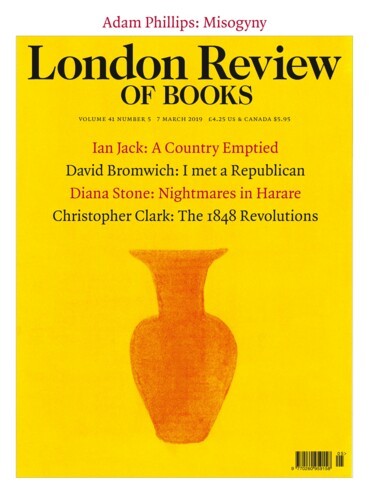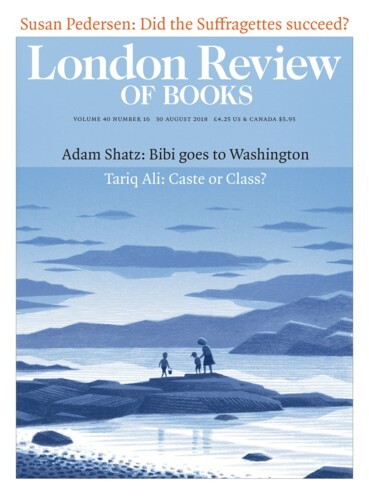A Solemn and Unsexual Man: Parson Wordsworth
Colin Burrow, 4 July 2019
Wordsworth was the first poet I fell in love with as a teenager. My English teacher (who preferred Pope and Henry James) mocked me for my taste, reminding me of Shelley’s description of Wordsworth in ‘Peter Bell the Third’ as ‘a solemn and unsexual man’. Never afraid of being thought either solemn or unsexual I persevered, and even persuaded my history teacher...




